If you notice tunnels near your foundation walls, support piers, floor joists, or on wooden objects, coupled with even a single termite sighting in your house, it’s a strong indicator of a nearby termite colony. These signs are typical of termite infestation – a problem many homeowners face in India and globally.
Termites, among the most problematic pests in the plant kingdom and human-made structures, pose a significant challenge. With over 2800 described species of termites, around 185 are considered pests. They are notorious for causing considerable damage to homes, often silently and unnoticed until it’s too late.
Understanding construction can help identify possible entry points for termites. Recognizing signs of termites is equally important, as early detection can prevent extensive damage. However, eliminating termites often requires chemicals, which can be risky if you’re not experienced in their safe application or don’t have the appropriate safety equipment. In such cases, seeking professional help for effective and secure termite control is generally advisable.
This blog post will delve into termite control, focusing specifically on chemical treatments. While using chemicals might seem daunting, it’s a proven method of dealing effectively with these pests. We will explore five effective chemicals against termites that are safe for humans and pets.
Types of Chemical Treatments for Termite Control
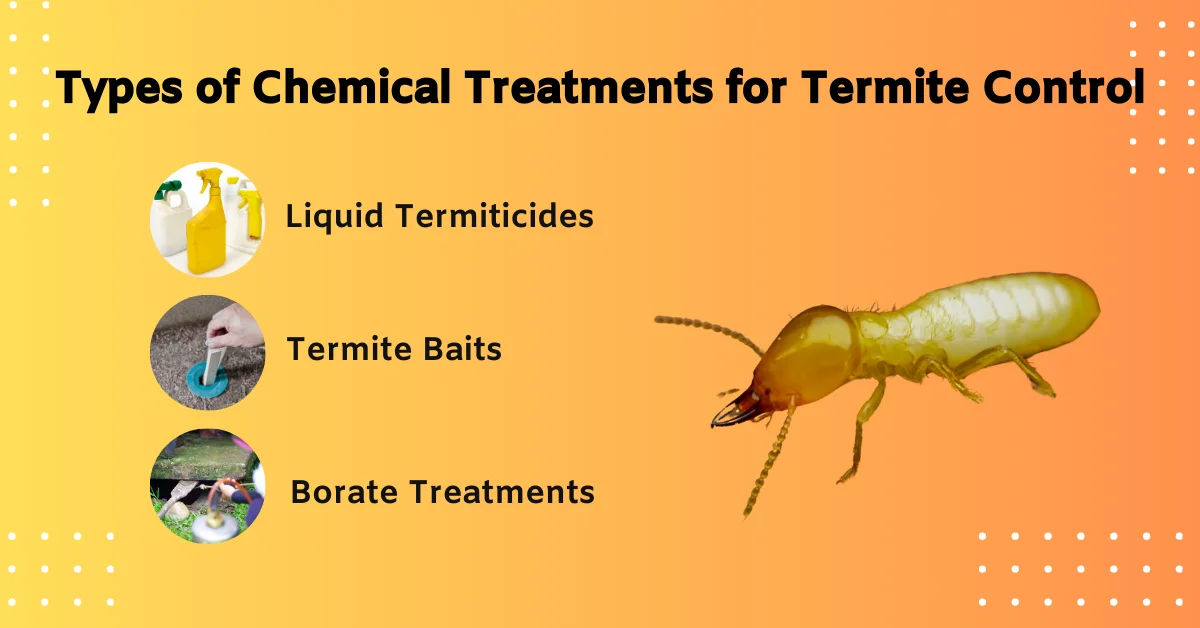
When safeguarding your home against termites, understanding the various types of chemical treatments available is essential. Let’s explore the chemical treatments used in termite control, providing insights into their mechanisms, applications, and advantages.
1. Liquid Termiticides
Liquid termiticides are chemical substances designed to create a barrier in the soil that keeps termites away from buildings. When applied, they either kill or repel termites that come into contact with the treated area. These chemicals are usually applied in the soil around a building’s foundation and sometimes beneath concrete slabs or within foundation walls.
Some widely used liquid termiticides include:
- Fipronil: Known for its long-lasting effect, this chemical disrupts the termite’s central nervous system.
- Imidacloprid: It acts on the termite’s nervous system, causing paralysis and death.
- Bifenthrin: Often used for its strong repellent properties against termites.
2. Termite Baits
Termite baiting systems involve placing bait stations around your property. These stations contain cellulose-based materials (termite food) with a slow-acting pesticide. Termites feed on these baits and carry the toxicant back to their colony, thereby infecting other members, including the queen, leading to the collapse of the entire colony.
Baits specifically target termites without affecting non-target species. They don’t require extensive drilling or soil trenching. Lower chemical usage compared to liquid termiticides. Effective in eliminating entire colonies, not just individual termites.
3. Borate Treatments
Borate treatments involve the use of boron, a naturally occurring mineral. When applied, it seeps into the wood, making it poisonous to termites. This method is often used during construction but can also be applied to existing structures.
It can be applied by painting, spraying, or injecting into wood structures and is ideal for preventing termite infestations, especially during construction. It is highly effective and long-lasting, remaining within the wood for an extended period. It is generally safer than other chemical treatments, posing minimal risk to humans and pets.
Each chemical treatment method offers different advantages and can be selected based on the infestation’s specific needs, the property’s layout, and environmental considerations. For the best results, consulting with a pest control professional who can assess the situation and recommend the most suitable treatment plan is advisable.
Top 5 Chemicals For Effective Termite Control
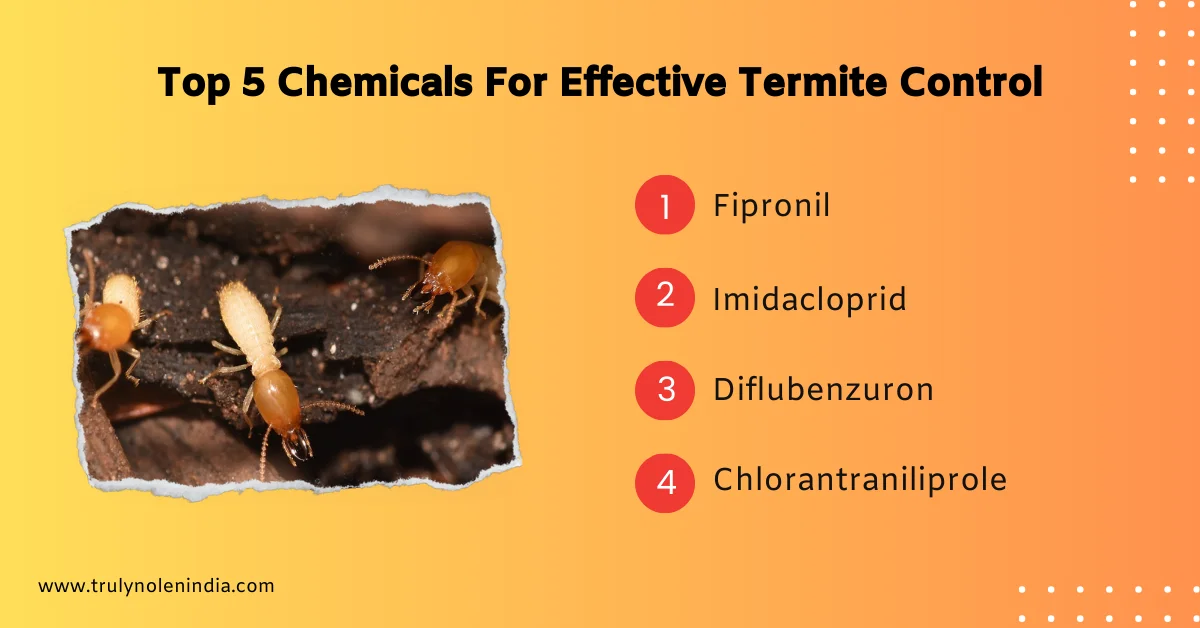
Termites are a pervasive and damaging pest, requiring effective control measures to protect structures from their destructive habits. These termiticides are widely recognized for creating barriers, eliminating termite colonies, and safeguarding homes and buildings from these silent destroyers.
Below, we delve into the specifics of each product, outlining its active ingredients, modes of action, applications, and benefits.
1. Fipronil
Type: Non-repellent liquid termiticide
Termites that come into contact with the treated soil absorb Fipronil through contact and ingestion. The substance then spreads throughout the colony due to the termites’ social behaviors, leading to widespread elimination.
Fipronil is applied as a liquid barrier around the perimeter of a structure. This creates an invisible zone that termites cannot detect, ensuring they come into contact with the termiticide.
Its non-repellent nature means termites do not avoid the treated area. The “transfer effect” ensures the chemical is spread throughout the colony, leading to comprehensive colony management and elimination.
2. Imidacloprid
Type: Soil treatment termiticide
Imidacloprid creates a protective barrier in the soil. Termites that come into contact with or ingest the treated soil are affected, leading to their demise.
This termiticide is applied to the soil surrounding a structure. The objective is to create a lasting barrier that termites cannot penetrate without exposure to the active ingredient.
It is highly effective against a range of termite species, making it a versatile option. It offers extended protection, safeguarding the structure for longer periods.
3. Diflubenzuron
Type: Termite baiting system
Diflubenzuron disrupts the molting process of termites, which is essential for their growth and development. This leads to the gradual decline and eventual elimination of the termite colony.
Bait stations containing this chemical are placed and monitored around the property. Termites are attracted to these stations and consume the bait.
This specifically targets termites at the colony level. It interrupts the termite life cycle, ensuring effective long-term control.
4. Chlorantraniliprole
Type: Non-repellent liquid termiticide
It acts on the termite’s muscles, causing paralysis and subsequent death. Termites cannot detect this termiticide, ensuring they come into contact with it. Chlorantraniliprole is applied as a liquid barrier around the structure. It further ensures comprehensive coverage and protection against termites.
It is considered environmentally friendly due to its low toxicity to non-target organisms and offers a safer option for termite control, especially in sensitive environments.
Each termiticide provides a unique approach to termite control, from creating undetectable barriers to targeting the termites’ life cycle. Understanding these options allows homeowners and professionals to select the most appropriate method for their termite problem, ensuring effective and long-lasting protection against these destructive pests.
Tips for Effective Self-Application of Chemicals For Termite Control
- Identify the Termite Species: Different species require different treatment methods.
- Choose the Right Chemicals: Research and select chemicals that are effective for the type of termites you’re dealing with.
- Follow Safety Protocols: Always wear protective gear and follow the manufacturer’s instructions when handling chemicals.
- Regular Monitoring: Monitor treated areas to check for signs of recurring infestation.
- Precision in Application: Apply chemicals carefully and thoroughly to ensure effective treatment.
- Stay Informed: Keep up-to-date with new methods and products for termite control.
When to Opt for a Professional Termite Treatment
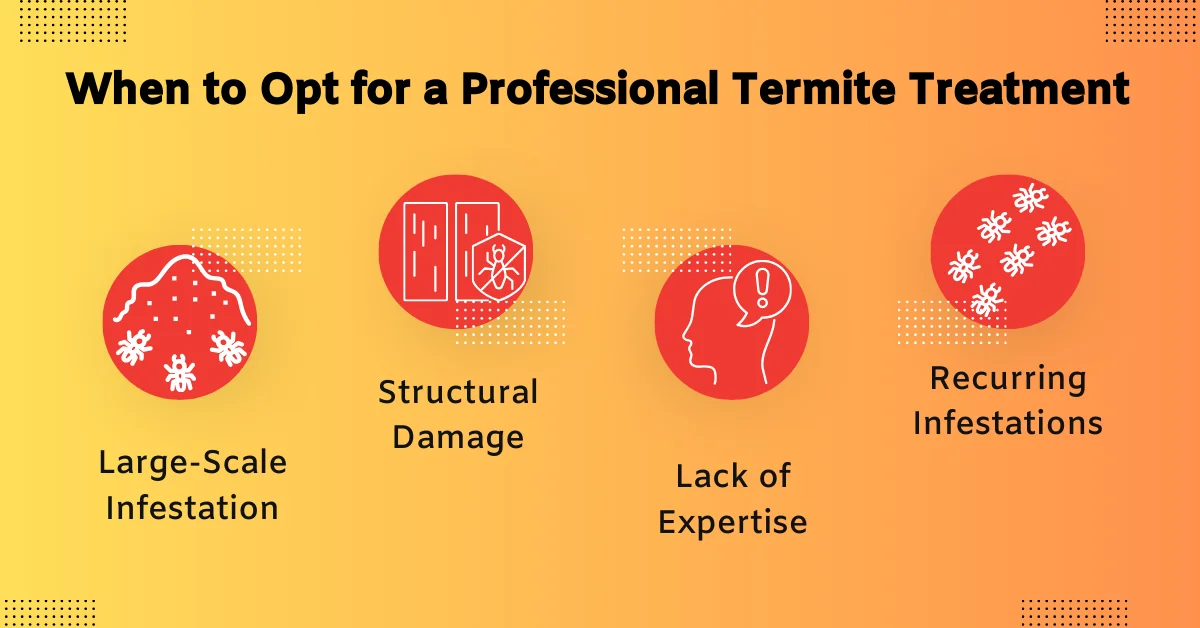
Deciding between professional termite treatment and DIY methods is crucial for effective termite control. This section outlines when it’s advisable to call in professionals, and tips for those who choose the DIY route.
When to Call a Professional
- Large-Scale Infestation: Professional intervention is recommended if the termite infestation is extensive or the colonies are widespread.
- Structural Damage: Professionals should be called if there is significant damage to the structure of the building.
- Lack of Expertise: If you’re unsure about identifying termites or the extent of the infestation, it’s safer to consult a professional.
- Recurring Infestations: If previous treatments haven’t worked and termites keep returning, professional help can offer a more effective solution.
While DIY termite treatment can be effective for minor infestations and offers cost benefits, it’s important to recognize situations where professional help is necessary. For those opting for DIY methods, thorough research, careful application, and regular monitoring are key to ensuring the safety of the effective termite treatment.
Guard Your Property Against Termites With Truly Pest Solution!

Understanding the various chemical treatments available, from liquid termiticides to bait systems and environmentally safer options, allows homeowners to make informed decisions. Whether opting for professional services or taking a DIY approach, applying these treatments correctly and monitoring their effectiveness over time is essential. Remember, the key to successful termite control lies in early detection, correct application of treatments, and ongoing vigilance.
Truly Pest Solution offers more than just a pest control service; it’s a commitment to maintaining a termite-free environment. We specialize in tackling termites’ unique challenges with innovative, eco-friendly, and hassle-free solutions. Our approach is designed to minimize the use of chemicals, ensuring the safety and well-being of your space.
We provide tailored, research-driven, eco-friendly, and hassle-free services to prevent termites. With Truly Termite Control plan, we offer a safe, efficient, and technologically advanced method to prevent termites in your home and maintain a safe environment.
Contact us and Book a Meeting now!
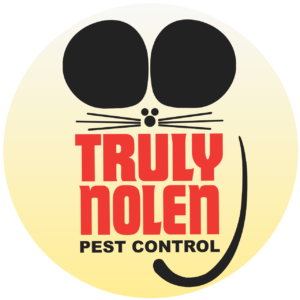
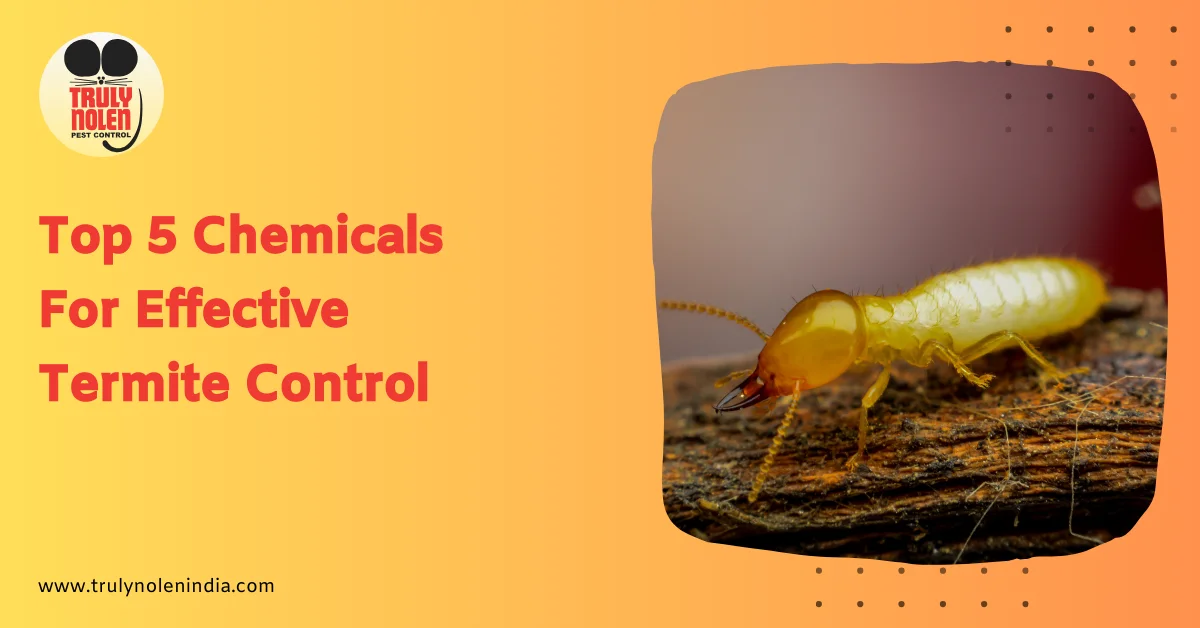
Leave a Reply